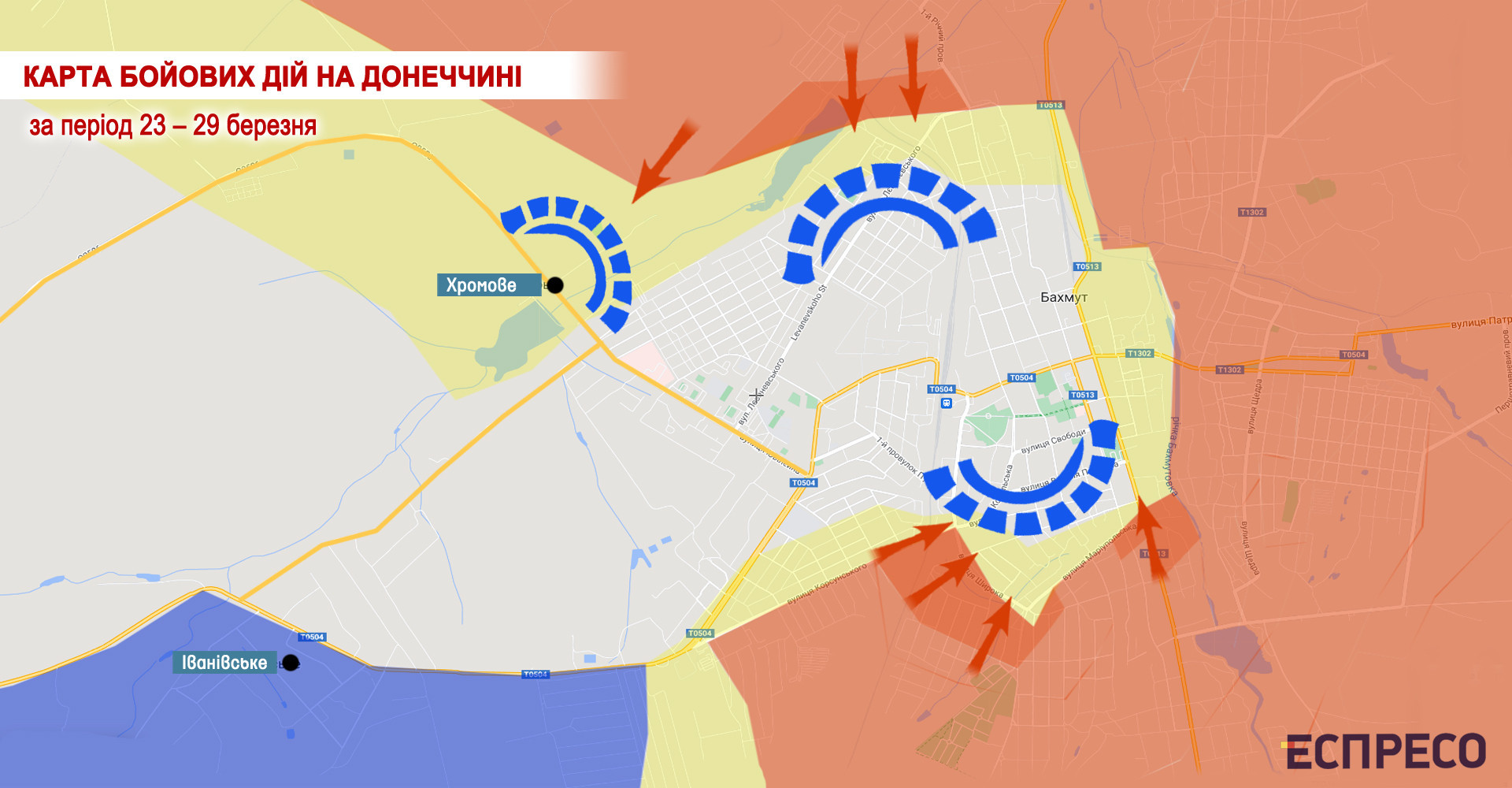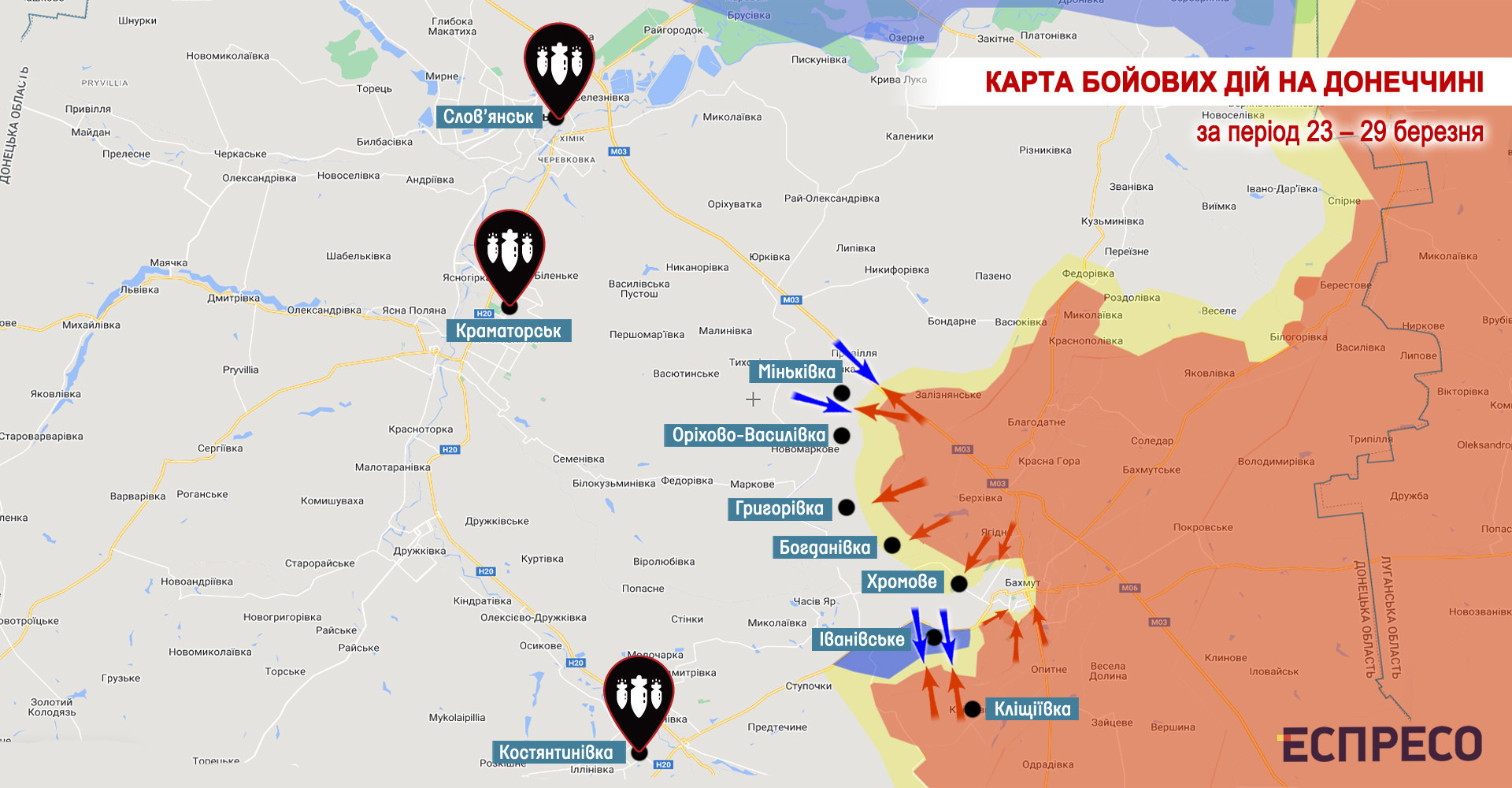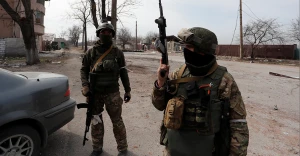
Russian offensive on Bakhmut’s outskirts slows to near standstill. Military expert Serhiy Zgurets
Fighting continues in Bakhmut’s city center. Russia has concentrated on smaller sections of the frontline, this is the result of the depletion of Russian forces
Defense of Bakhmut
In an interview with the Associated Press, Ukrainian President Volodymyr Zelenskyy said that if Ukraine does not win a protracted battle in the key eastern city, Russia will try to seize the moment to push the world toward a deal that may require unacceptable compromises from Ukraine. At the same time, Ukraine’s Ministry of Defense notes that they are defending Bakhmut as devotedly as any other settlement. The use of Ukrainian forces and means is determined not by political expediency, but by the resources needed to repel Russian aggression and perform combat missions in this area.

The Russian offensive on the outskirts of Bakhmut slowed to a complete stop, or almost to a complete stop. Russia has concentrated on smaller sections of the frontline. I believe this is the result of the depletion of Russian forces. It is unclear whether Russia has enough reserves and equipment to regain momentum. There are Ukrainian counterattacks and consolidations in the direction of Klishchiivka. Ways to supply the city are operating. In Bakhmut, fighting is ongoing in the city's urban area. Russia is trying to push through from the north, south and west, but without much enthusiasm. In Bakhmut, fighting continues in three main areas. In the northern part, around the plant and in the Azot plant itself, in the south along Korsunskyi Street and in the area of Mariupolska Street. Artillery is working, Ukrainian snipers are active. Armored vehicles are also operating, although to a limited extent.

Mykola Volokhov, commander of the Terra reconnaissance unit of the Azov tactical group, said that the situation in Bakhmut has been tense for several months, but controlled. Russians are trying to advance. Wagner PMC and regular Russian troops are working. Russia is making great efforts to capture Bakhmut. It is hard for Ukrainian troops, but they are holding on. Urban battles are characterized by the fact that changes occur hourly, if not minute by minute. Russia is bringing in a lot of infantry and trying to squeeze Ukrainian forces out. But the defense line of the Ukrainian Armed Forces is holding firm. Russian troops have no success.
Volokhov noted that he could not testify to a decrease in the intensity of hostilities. He feels like Russia wants to "finish" the Bakhmut case, but recently it has not had any military success. Russians have been fighting for the city for seven months. We all need to make efforts and support the Ukrainian Armed Forces. Everything depends on us.
Government resolution on the production of domestic unmanned systems
The Ukrainian defense industry, mainly private, can produce unmanned reconnaissance and strike systems. On March 24, the Cabinet of Ministers of Ukraine adopted Resolution #256, which claims to be revolutionary. This resolution is entitled "On the Implementation of a Pilot Project for Defense Procurement of Domestically Produced Unmanned Systems." The resolution introduces a two-year experiment that has two components. First, it removes restrictions on profitability in the manufacture of unmanned systems. This means that whatever price is determined to be optimal, the unmanned system will be purchased at that price. And the second component is military missions that influence the quality of the sample and know the procedures for meeting military requirements, which are now sidelined and are not relevant to projects developed by private companies.
Artem Viunnyk, director of the research and production company Athlon Avia, said that the adoption of such a resolution is already revolutionary. This government decision has actually articulated that the unmanned systems industry is currently the flagship of Ukraine's military-industrial complex. This is a very important recognition and will not only provide legal grounds, but also give inspiration to the teams that are currently working on various solutions for the Ukrainian Armed Forces.
Viunnyk added that it will be necessary to see how this resolution will perform in practice. For example, according to the text of the resolution, military missions are deprived of their basic governing documents, and the appendix to this resolution provides for the issuance of a product quality certificate. I wonder how a military representative office will issue a quality certificate when they do not apply such familiar procedures for them and for us.
The director of the research and production company Athlon Avia said that he did not fully understand the context and intent of the resolution. However, the resolution and the procedure state that the customer's military representative offices accept the relevant products. According to his company's experience, the Ministry of Defense is the military representative office of the customer.
Viunnyk noted that there is another interesting component: the conclusions of an expert institution, i.e. Kyiv Scientific Research Institute of Forensic Expertise, which is supposed to determine the possible price for this product. It is unclear how this institution will issue its conclusions. To estimate the cost of one drone from another, you need serious experts who understand the differences. For example, a data channel can cost USD 500, or it can cost USD 25,000. Moreover, there are already good prototypes of radio channels produced by Ukrainian domestic companies. They can already compete with foreign solutions. And the question arises: What factors will be taken into account to determine the price of this product? It is necessary to assess the possible cost of certain solutions by comparing them with foreign counterparts. Then the price will suit both manufacturers and the state.
The situation with this resolution is not so clear. I understand that there are many nuances that can limit the effectiveness of this decision. This means that additional active work needs to be done to make it an impetus rather than a hindrance to the development of Ukrainian unmanned aviation.
- News












































